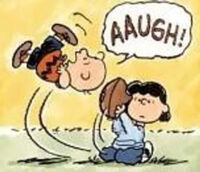I asked Jesse to blog about non-compliance, and at first, he was non-compliant, but now he's just being resistant. Or oppositional?
Oh, truthfully, I don't like the term 'non-compliance' either. It's a term I rarely, if ever, use because I would never think of someone who stops a medication because it was too expensive, or because they were having side effects, or because they felt better at a lower dose, or decided that a different medicine worked better, as being "non-compliant." It is a pejorative term, and people need to be their own medical advocates, and the decision to take or not take a medication is a personal one where many factors come into play.
Why I Don’t Want to Blog on Non-Compliance
I
try to be compliant with most of Dinah’s requests, but this one threw
me and it took me a while to realize why. The term is being, in my view,
misused here when it come to psychiatry. Compliance is a term that is
best used in the legal/governmental sense. It implies bending someone to
one’s will. “The Office of Medicare Compliance” for example. They make
the rules, or at least administer them, and those affected had better
comply.
The
word compliance is frequently used in medicine. If a doctor said, for
instance, “I told the patient to take his penicillin twice a day for two
weeks, but he stopped it after two days,” we would understand that he
had not complied with the instructions but we would not know why.
Patient non-compliance could be due to an unpleasant side effect,
difficulty in following the instructions, expense of the medication, and
so on. It does not imply disobedience or ill will, but only that the
advice was not followed.
Yet
in psychiatry, and particularly in the type of psychiatry that I
practice, that of psychodynamically-oriented therapy with completely
voluntary adult patients, the term itself seems particularly wrong.
Certainly I have opinions and express them, prescribe medications,
suggest intervals between appointments, and occasionally even give
direct advice, but I have never thought of “compliance” in all the time I
have been practicing and never think of patients as being
“non-compliant.” A patient might come in for his session and, for
reasons I might not understand that hour, sit the entire time without
saying a word. That is his choice, and my job is to be sensitive to what
is going on and try to help him, not superimpose my own values and
expectations.
Do patients come late, or not at all? Of course. Not take medication or stop it without having called me? Certainly...
Wait!
Let’s pause at that last one: If a patient does not call me in regard
to a medication issue, and stops it, is he non-compliant? It is much
more fruitful to try to understand, with him, what led him to do as he
did. “I didn’t want to bother you over the weekend” he says. I could
simply say that it would not have been a bother, or I might try to
understand what he felt. “I thought you might be annoyed with me if I
called.” “I felt it was my fault I ran out of the medication.” Or even
“Perhaps your wife would have answered the phone and I would have felt
like I was intruding into your private life.”
One
does not need psychoanalytic training to sense that there is a lot to
be gained that could be helpful to a patient by being non-judgmental and
thus being able to help him explore his thoughts and feelings, to see
how they may be playing into his troubles.
So
I find it much more useful in trying to understand and help my patients
to be as non-judgmental as possible. And non-compliance is a judgmental
term, better left to that Office of Medicare Compliance.








